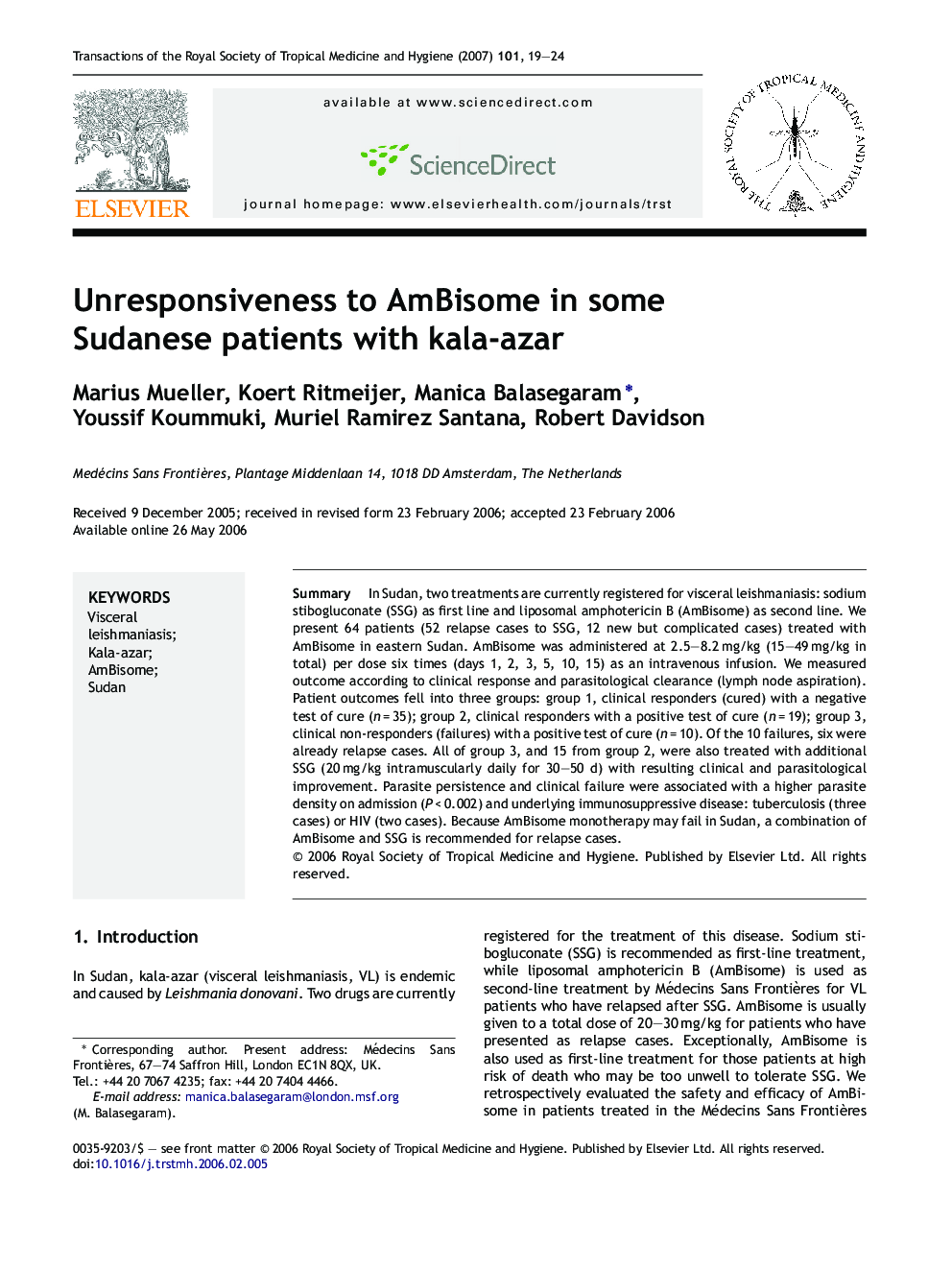| Article ID | Journal | Published Year | Pages | File Type |
|---|---|---|---|---|
| 6137769 | Transactions of the Royal Society of Tropical Medicine and Hygiene | 2007 | 6 Pages |
Abstract
In Sudan, two treatments are currently registered for visceral leishmaniasis: sodium stibogluconate (SSG) as first line and liposomal amphotericin B (AmBisome) as second line. We present 64 patients (52 relapse cases to SSG, 12 new but complicated cases) treated with AmBisome in eastern Sudan. AmBisome was administered at 2.5-8.2 mg/kg (15-49 mg/kg in total) per dose six times (days 1, 2, 3, 5, 10, 15) as an intravenous infusion. We measured outcome according to clinical response and parasitological clearance (lymph node aspiration). Patient outcomes fell into three groups: group 1, clinical responders (cured) with a negative test of cure (n = 35); group 2, clinical responders with a positive test of cure (n = 19); group 3, clinical non-responders (failures) with a positive test of cure (n = 10). Of the 10 failures, six were already relapse cases. All of group 3, and 15 from group 2, were also treated with additional SSG (20 mg/kg intramuscularly daily for 30-50 d) with resulting clinical and parasitological improvement. Parasite persistence and clinical failure were associated with a higher parasite density on admission (P < 0.002) and underlying immunosuppressive disease: tuberculosis (three cases) or HIV (two cases). Because AmBisome monotherapy may fail in Sudan, a combination of AmBisome and SSG is recommended for relapse cases.
Related Topics
Life Sciences
Immunology and Microbiology
Applied Microbiology and Biotechnology
Authors
Marius Mueller, Koert Ritmeijer, Manica Balasegaram, Youssif Koummuki, Muriel Ramirez Santana, Robert Davidson,
